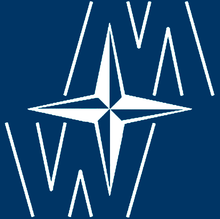Bulgarian Chaplaincy Association and Master of Chaplaincy Program Ministry 2020 Priority Review
 In the midst of the 2020 pandemic, the Bulgarian Chaplaincy Association was able to continue in active field ministry as well as its Master of Chaplaincy Program in affiliation with New Bulgarian University. Another doctoral graduate from the chaplain’s program graduated in 2020 with special focus of ministry in the Eastern part of Bulgaria. The Association has not completed its task yet, namely, legalizing chaplaincy within the Bulgarian armed forces, but major milestones have been accomplished. Our 2006 proposal submitted to NATO’s Manfred Wörner Foundation is being implemented as foundational to the doctrine and direction of the Association, being now used by other fields and states as well.
In the midst of the 2020 pandemic, the Bulgarian Chaplaincy Association was able to continue in active field ministry as well as its Master of Chaplaincy Program in affiliation with New Bulgarian University. Another doctoral graduate from the chaplain’s program graduated in 2020 with special focus of ministry in the Eastern part of Bulgaria. The Association has not completed its task yet, namely, legalizing chaplaincy within the Bulgarian armed forces, but major milestones have been accomplished. Our 2006 proposal submitted to NATO’s Manfred Wörner Foundation is being implemented as foundational to the doctrine and direction of the Association, being now used by other fields and states as well.
As prisoners in Bulgaria were not generally released during the Pandemic, prison chaplaincy continued through the Sofia region office led by one of our students from the Masters’ Program.
Hospital chaplaincy has remained a challenge as many hospitals, especially in mid-Bulgaria, struggled to provide adequate healthcare during the pandemic crises.
International chaplaincy among Bulgarian migrants have continued as allowed by shutdown orders in various countries in the European Union. On several occasions large communities of migrant workers were forced by the economic challenges to return to Bulgaria, which has presented additional opportunities for chaplaincy ministry.
Institutional chaplaincy has been the weakest point as in the past decade, as interweaving religion and business in the Bulgarian context of ministry has remained a strong test for the endurance of chaplaincy. However, the corporate ecosystem in Bulgaria is progressively changing as foreign investors are continuing to establish regional offices and labor opportunities in the country.
Haskovo, Harmanli and the Strandja region toward the Turkish border south of Yambol have been a focal point of chaplaincy among foreign migrants residing in Bulgaria. We have already established relationship with para-church organizations that work successfully among Muslim migrants in the Scandinavian countries. Their experience and training within the Bulgarian context of ministry has been indispensable.
Finally, social involvement through community chaplaincy has been developing well in the past several years, especially in major project areas like the second largest Bulgarian city of Plovdiv, the region of South Bulgaria, along the Black Sea especially in Bulgaria’s largest sea port at Varna, and along the Danube River including the port cities of Silistra, Rousse, Svishtov and all the way to Vidin.








Comments